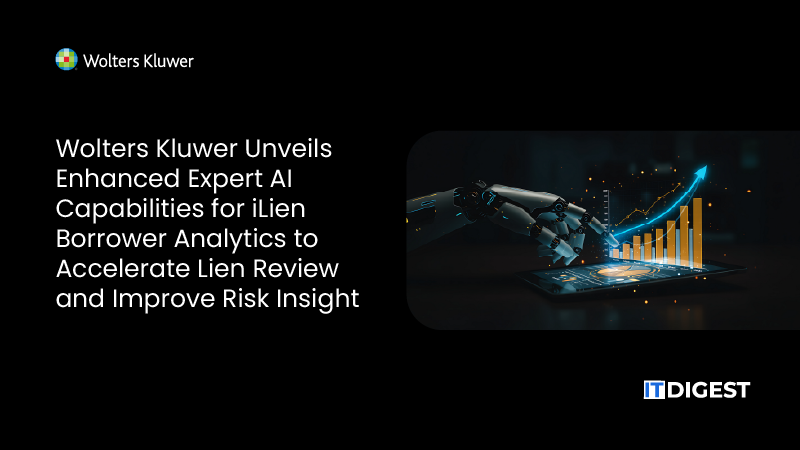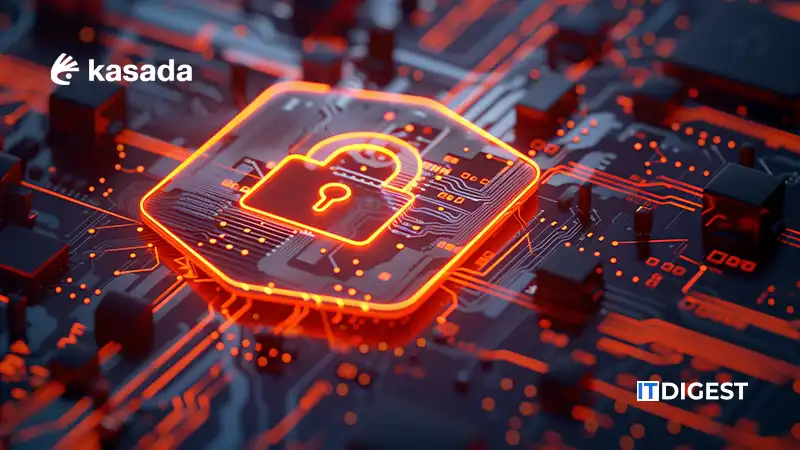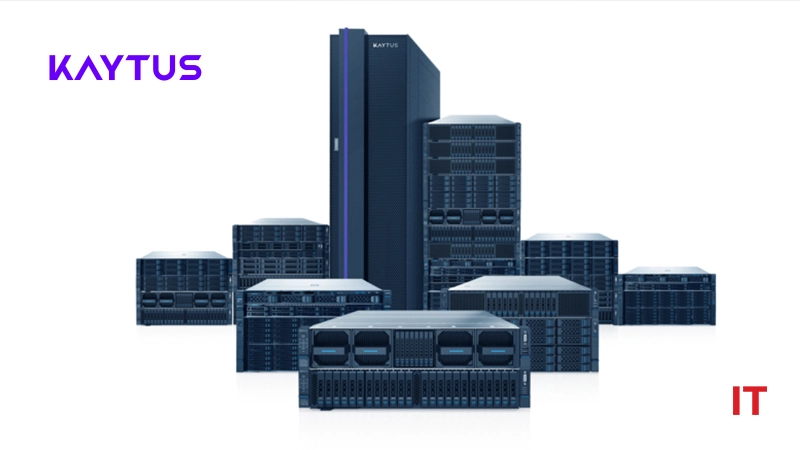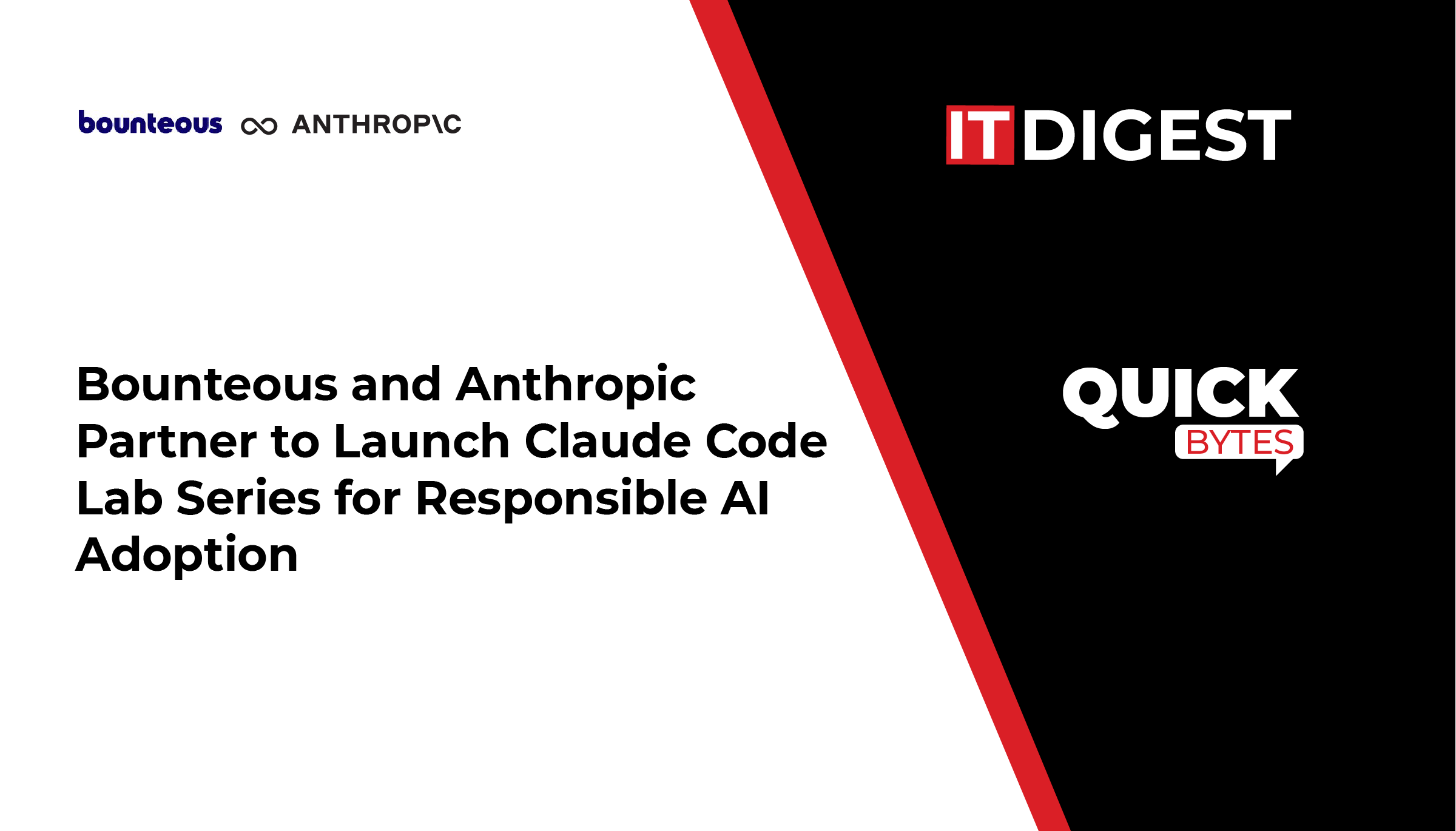The V3 server family supports a variety of computing platforms, advanced intelligence and environmentally friendly liquid cooling, enabling customers to make comprehensive upgrades for all scenarios in the AI era
KAYTUS, a leading IT infrastructure provider, has announced the launch of its V3 server family. This latest lineup supports the powerful Intel® Xeon® 6 processors and AMD EPYC™ 9005 processors and offers 17 versatile server models designed for general computing, multi-node configurations, critical computing, storage optimization and rack-scale systems. Designed with enhanced intelligence and groundbreaking cooling solutions, the V3 server family ensures seamless support for various AI applications. Equipped with advanced compute and storage technologies, it maximizes CPU bus bandwidth, memory bandwidth and overall capacity. The dual-socket models feature up to 576 cores and clock speeds of up to 5.0 GHz, as well as an impressive 136% increase in memory bandwidth. Performance tests show that the V3 series achieves up to three times higher overall performance in AI inference scenarios with large models, such as LLaMA2, compared to its predecessor series.
KAYTUS V3 server supports all AI scenario applications
The rapid expansion of various AI application scenarios has brought about new challenges in the area of data processing. Each AI application has unique characteristics and system requirements that require more than just advanced algorithms. A robust, diverse computing power ecosystem and optimized data processing capabilities are equally critical for success.
The newly released V3 servers support a wide range of computing platforms including CPU, GPU and FPGA, promoting complete openness across components, firmware, nodes and rack systems. The V3 server family is committed to computing efficiency on a unified foundation, enabling both node scaling and network horizontal scaling to meet the scaling requirements of AI models. This comprehensive approach ensures support for a wide range of AI scenarios and delivers unmatched performance and adaptability.
At the component level, the V3 server supports memory expansion through CXL adapter cards and BOX, fully complying with CXL specifications. This advancement effectively balances the imbalance between computing power and data transport capacity, ensures seamless data flow, and increases overall system performance.
At the firmware level, the V3 firmware includes an open firmware management platform based on OpenBMC, which features a highly modular design with a layered, decoupled architecture. This architecture facilitates asynchronous iterations and functionally decoupled upgrades via standard interface protocols, and enables unified management across a variety of computing platforms.
At the node level, the V3 server family, based on the Server Compute Module (OCM) design specification, features a modular, decoupled computing architecture that enables “decoupling of the compute unit.” This architecture forms the smallest computing unit, organized around the CPU and memory, and supports standardized high-speed and low-speed connection interfaces. By componentizing the processor compute units, the V3 series achieves comprehensive compatibility with Intel and AMD processors, creating a unified computing architecture and increasing user acceptance. Users can easily find customized solutions for different application requirements. For example, the KR2190V3 model is fully decoupled, supports both Intel BHS and AMD Turin processors, and facilitates standardization of computing for rapid cross-platform and cross-scenario deployment.
The V3 server family also introduces a diversified open acceleration computing platform based on the UBB2.0 specification and compatible with multiple OAM v2.0 modules that comply with the OCP open acceleration standards. With a fully modular design and excellent system energy efficiency, this platform supports the iterative development of large models and AI applications, further driving the innovation and integration of computing power.
At the rack level, KAYTUS has introduced a rack server compatible with selected open OCP standards that is designed to embody the IT architecture of the future. This rack server accommodates 19-inch and 21-inch nodes and offers versatile computing capabilities, open decoupling and seamless business implementation right out of the box.
Data forms the backbone of AI models, so accelerated data processing is a critical requirement. Large language models (LLMs), especially multimodal models, are now faced with the challenge of processing significantly larger data sets, requiring systems with increased storage capacity for efficient data preprocessing and storage. The V3 server is fully optimized for data storage and supports single drive capacities of up to 128 TB, with a single server capable of holding up to 6 PB and a single rack achieving a 2.7x increase in storage capacity. This ensures exceptional data processing and storage performance, effectively meeting the high demands of modern AI applications.
Native intelligence improves computing efficiency
As the computing power and load of IT infrastructure continues to increase, it is essential to ensure the long-term stable operation of server hardware. This stability is often challenged by three main problems: unreliable server alerts, inaccurate diagnostics, and failed failure predictions. To address these challenges, KAYTUS has developed a comprehensive fault diagnosis system that includes over 20 new features that enable real-time monitoring and alerts on server health throughout the entire lifecycle.
The V3 server family has received intelligent upgrades in the areas of fault prediction and alerting. In memory, AI training with extensive fault data from thousands of servers enables real-time monitoring of memory errors and achieves an impressive 85% accuracy rate in detecting UCE (Uncorrectable Error). For hard drives, advanced fault warning technology built into array cards sets proactive flags. Regular BMC polling automatically uploads alerts for faulty drives, ensuring timely replacement. In addition, diagnostic capabilities have been enhanced with an independent diagnostic module capable of detecting nanosecond-level glitches in the digital signals of the server motherboard. This real-time monitoring of key components increases the accuracy of locating the root cause to 95% and significantly increases system reliability.
Also Read: Motivair Launches MCDU-10, Optimized for AI Workloads
Environmentally friendly liquid cooling for highly efficient AI workloads
The rise of AI applications has led to a significant increase in electricity consumption in data centers worldwide. Since cooling systems play a significant role in this energy consumption, optimizing their efficiency is now more important than ever. The use of innovative cooling solutions is key to building energy-efficient, sustainable data centers that meet the growing demands of the AI era.
The KAYTUS V3 servers set a new standard for energy efficiency with comprehensive liquid cooling optimization. Each KAYTUS server supports liquid cooling and features the latest, safe and efficient technologies such as two-phase cold plates, negative pressure systems, special coatings for motherboard PCBs and proactive power shutdown mechanisms to prevent potential leaks. These measures together reduce energy consumption and increase the performance and sustainability of data centers.
KAYTUS liquid cooling systems achieve an industry-leading cooling efficiency of 85%. With innovations such as “Sleeper” liquid cooling for storage and waterless heat exchange solutions for hard drives, the system supports various storage thicknesses and hard drive configurations. The liquid-cooled rack-scale server improves heat dissipation, provides flexible node support, strengthens leak protection, and incorporates standardized liquid cooling components, setting a new benchmark for performance and reliability in data center cooling.
The V3 servers also set new standards in overall energy efficiency by integrating component-level thermal monitoring, an advanced single-fan control strategy, and high-performance fans, improving cooling efficiency by 20%. In addition, all V3 servers come standard with Titan power supplies, which offer an impressive conversion efficiency of over 98%. These power supplies maintain their high conversion efficiency over a wide workload range of 20% to 50%, ensuring optimized performance and energy savings.
KAYTUS presents innovative products tailored to AI-centric applications
The KAYTUS V3 server family features revolutionary performance and efficiency, proving to be a powerful engine in any AI scenario. Carefully optimized for compute density, storage density, I/O expansion, and full-rack deployment, this groundbreaking series fully meets the needs of AI computing, data storage, and cloud environments. The V3 servers are already making their mark and are gradually being deployed to KAYTUS’ leading and most important customers.
The KAYTUS V3 family offers solid support for database scaling, AI inference and cloud computing with its impressive computing power and expansion capabilities. The outstanding KR2280V3 server features an impressive 21 PCIe 5.0 slots and supports up to 45 hard drives, making it a leader in multi-scenario applications. With 70% increased AI computing power and doubled array computing power, customers can handle more complex data analysis, accelerate AI model training and inference, and make fast, informed decisions in a competitive market.
For applications that require the ultimate in storage and bandwidth, the KR1280V3 server boasts exceptional capabilities, offering 512 TB of flash storage and 300 GB/s of storage bandwidth in a compact 1U footprint with 32 E1.S drives connected directly to the CPU. As the number and load of GPUs increases, low-latency data transfer optimization has been improved by 13%, ensuring smoother and more predictable performance. This advancement delivers unprecedented speed and reliability when managing large data sets, significantly improving the performance and user experience of data-intensive applications.
In terms of energy efficiency and heat dissipation, the K22V3 server features an innovative 2U2N architecture with two independently hot-swappable nodes, significantly reducing migration costs after server failures. This design increases heat dissipation efficiency by 40% and reduces energy consumption by 8.5% compared to traditional 2U single-path servers, allowing customers to maintain high performance while reducing operating costs and promoting green data center operations. The K24V3 server goes a step further, supporting 8 processors and 1536 cores in a 2U space, providing up to 6.76 TB/s memory bandwidth, and over 85% liquid cooling. This robust design ensures excellent protection for high-density computing and provides unmatched computing power and stability for processing large amounts of data, ensuring the continuity and reliability of business operations.
For storage-optimized applications, the KR4266V3 server features support for 48 3.5-inch hard drives in a 4U space, providing cost-effective storage capacity of up to 1.4 PB. It also supports QLC U.2 SSD configurations with single drive capacities of 128 TB, enabling an impressive total capacity of 6 PB per server and offering sequential read memory bandwidth of 260 GB/s. This configuration provides customers with a cost-effective solution for storing large amounts of data while maintaining fast access and processing. The result is improved storage efficiency and increased data management flexibility, perfectly tailored to today’s data-intensive requirements.
The KRS6000S V3 server cabinet is set to make waves with its cold plate heat dissipation density of up to 200W/cm2 and advanced negative pressure and two-phase cold plate liquid cooling technology that eliminates the risk of leakage. Scheduled to be launched in the middle of next year, this innovative server will provide customers with an efficient, reliable and environmentally friendly solution for building large-scale, high-density data centers.
Source: Businesswire


































